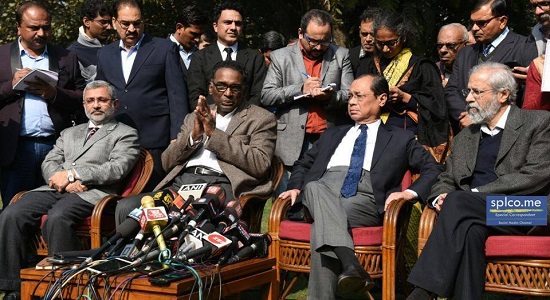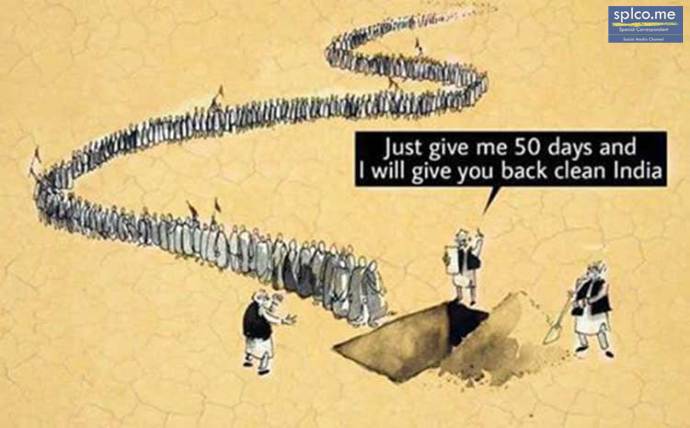“Four of us went to the CJI today with a request that a particular thing is not in order and it should be rectified. Despite our request, he did not do anything,” Justice Chelameswar said, without mentioning the Loya case.

When asked whether this request was in connection with the Loya case, Justice Gogoi admitted that it was.
Brief profile about the Judges who revolted agaisnt the Indian Supreme Court system :
Justice Chelameswar is the second-most senior judge in the Supreme Court. He studied physics at Loyola College in Chennai, before switching to law at Andhra University in Vishakapatnam.
Chelameswar was designated as a Senior Advocate in 1995 and was appointed as a judge of the Andhra Pradesh High Court in 1997. He has served as the Chief Justice of Gauhati High Court, and later Kerala High Court. Chelamsewar was elevated to the Supreme Court in October 2011, along with the current Chief Justice Dipak Misra.
In 2015, Chelameswar was the only dissenting voice when the Supreme Court struck down with a 4:1 majority a constitutional amendment on how judges are appointed. Chelameswar ruled in favour of the National Judicial Appointments Commission (NJAC) and argued that the collegium system had become an “euphemism for nepotism.”
Chelameswar was also part of the nine-judge bench that delivered the historic Supreme Court verdict declaring privacy as a fundamental right. Chelameswar is due to retire in October 2018.
Justice Gogoi is next in line, in order of seniority, to become the Chief Justice of India in October 2018. This would make him the first judge from the Northeast to be elevated to position of CJI, before he retires in November 2019.
Gogoi was a permanent judge at the Gauhati High Court in 2001 before he became the Chief Justice of Punjab and Haryana High Court. He was elevated to the Supreme Court in 2012.
In 2016, Gogoi issued a contempt notice to retired Supreme Court judge Markandey Katju in a review petition after Katju criticised Supreme Court proceedings on his blog.
Justice Lokur studied at Modern School in Delhi and St Joseph’s in Allahabad. He studied history at Delhi’s St Stephen’s College, before pursuing law at the Faculty of Law in Delhi University.
Lokur practised as an advocate in the Supreme Court and the Delhi High Court. He was designated Senior Advocate in 1997; the next year, he was appointed as the Additional Solicitor General of India.
Lokur became an Additional Judge of the Delhi High Court in 1999 and then was its Acting Chief Justice as well. He served as the Chief Justice of Gauhati High Court and Andhra Pradesh High Court, before he became a Supreme Court judge in 2012. He was reappointed as the head of the Supreme Court’s e-committee for digitisation of courts, which has undertaken the ambitious project of making the apex court paperless. He is due to retire in December 2018.
Born in Kerala, Justice Joseph completed his schooling in the state, before obtaining a law degree from the Kerala Law Academy Law College, Thiruvananthapuram. He started practising law in 1979 in the Kerala High Court, was appointed as Additional Advocate General and Senior Advocate, before he became a judge in 2000.
He served twice as Acting Chief Justice of the High Court of Kerala. Before he was elevated to the Supreme Court in 2013, he was the Chief Justice of the Himachal Pradesh High Court from February 8, 2010 to March 7, 2013. Joseph will retire in November 2018.














